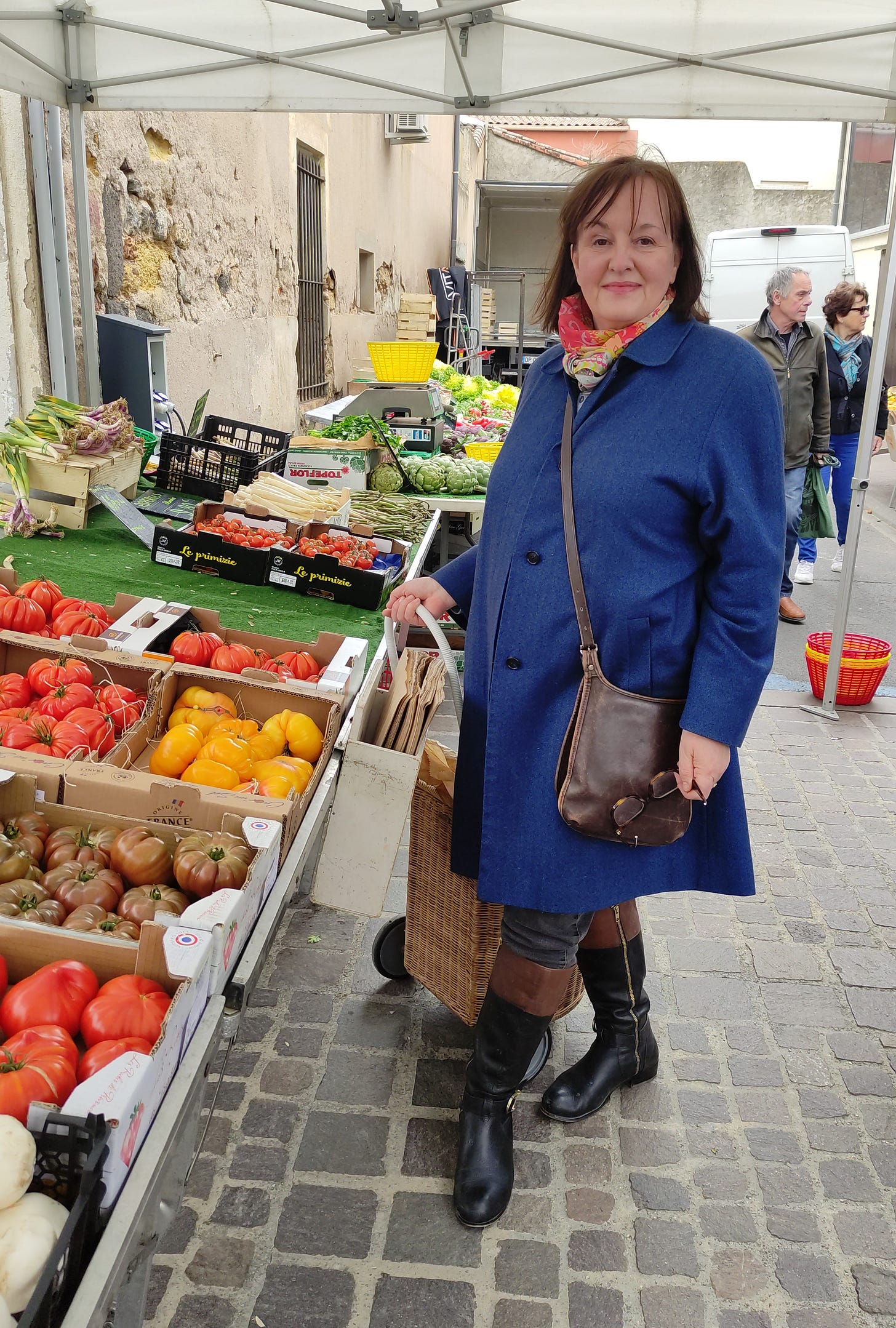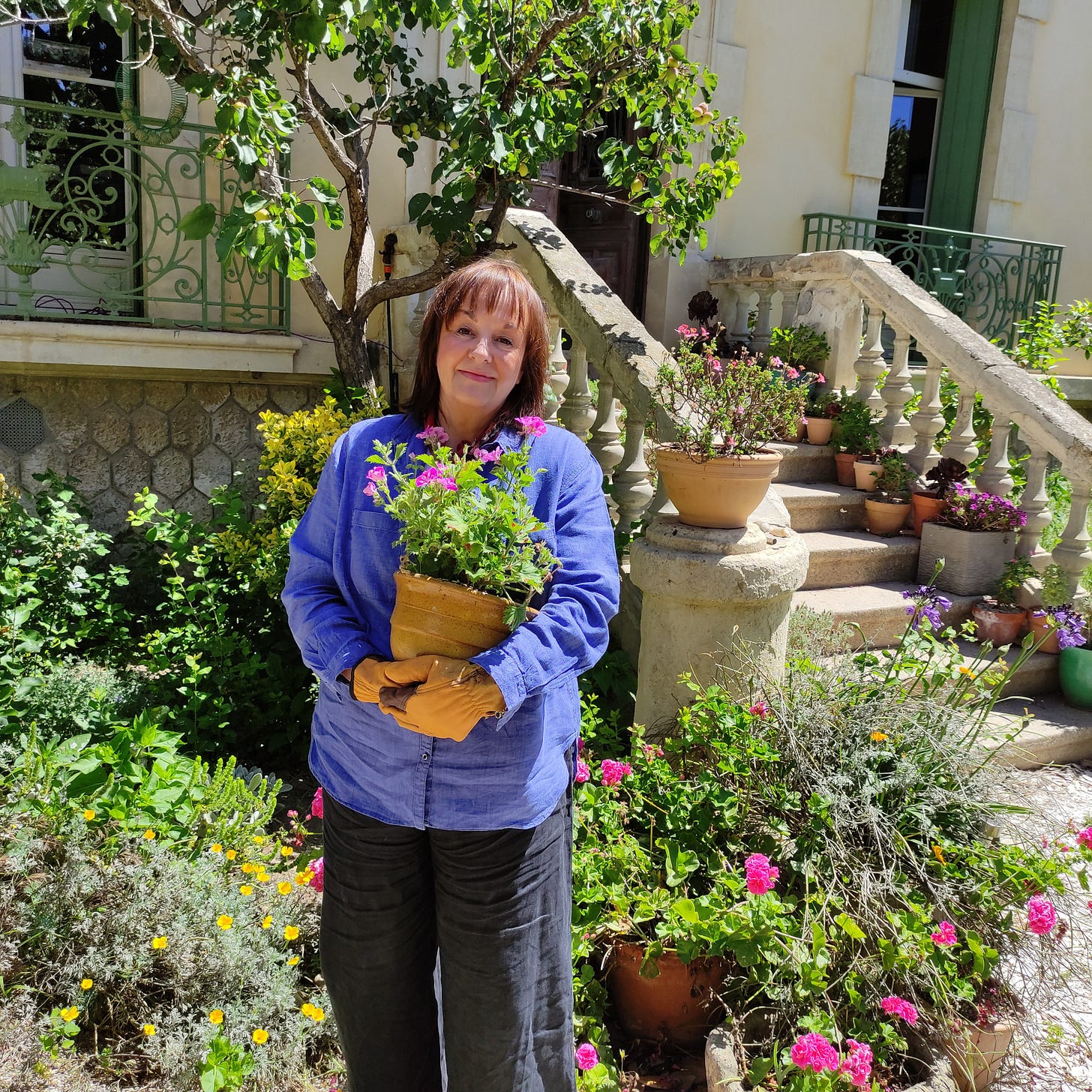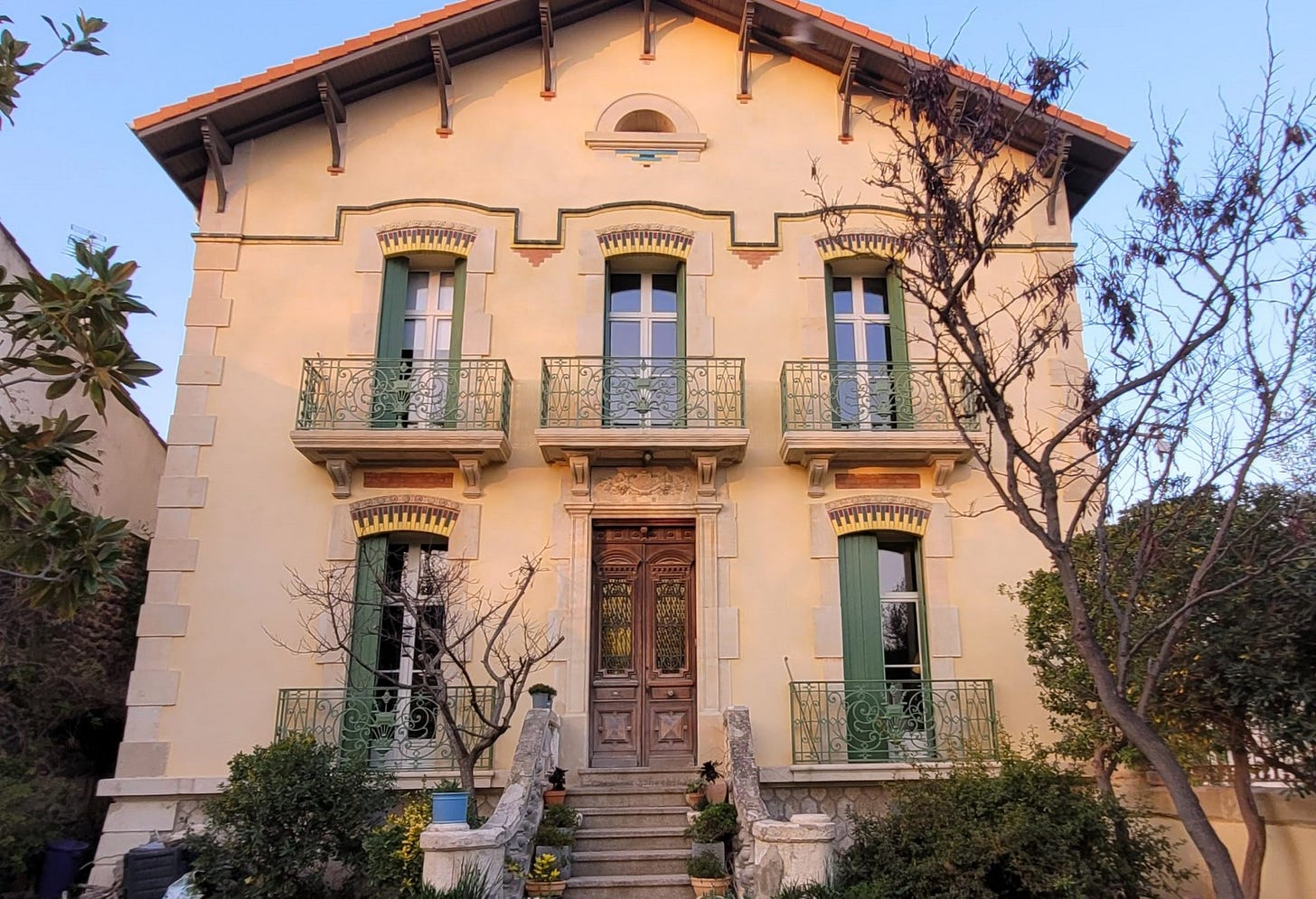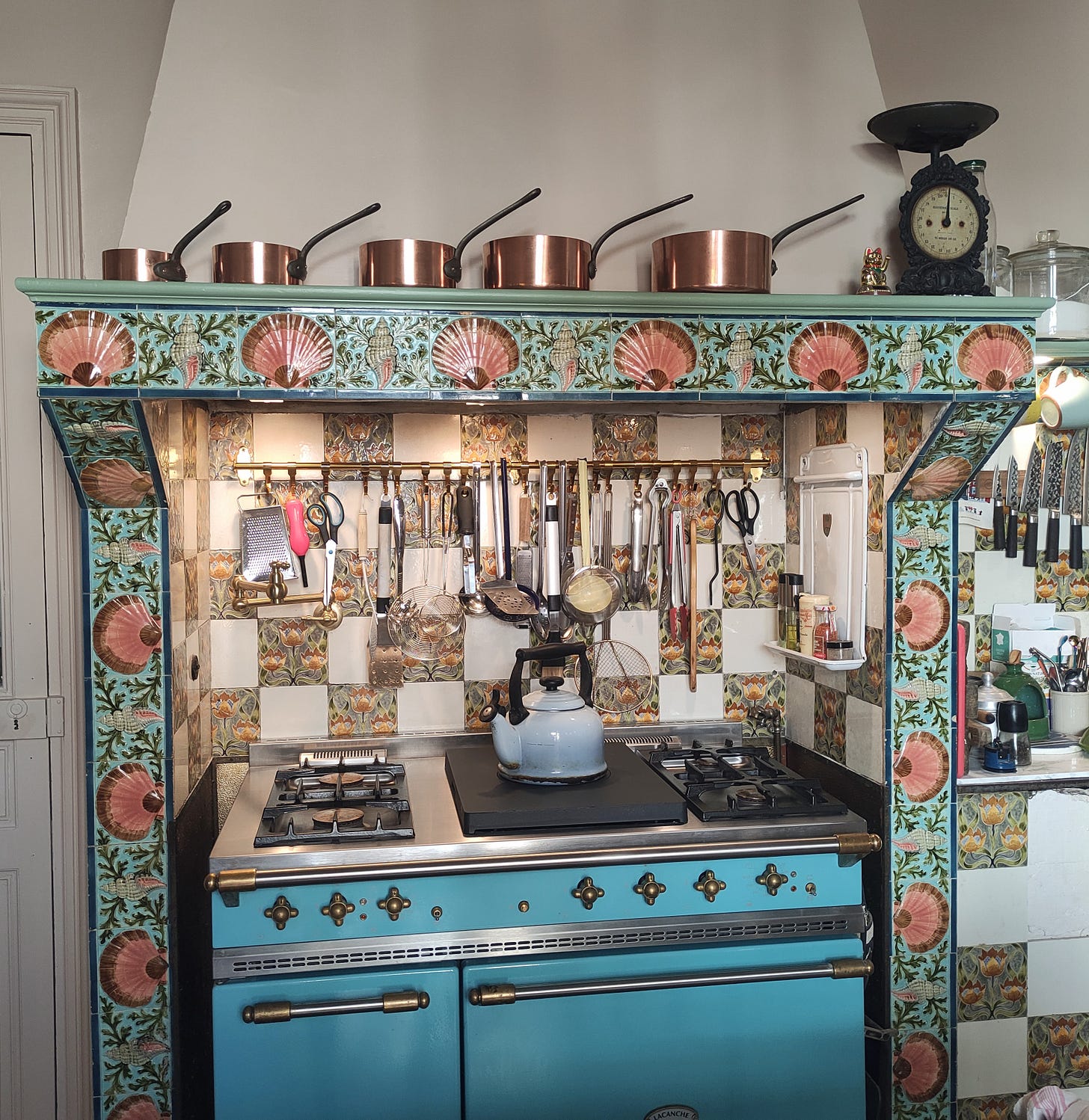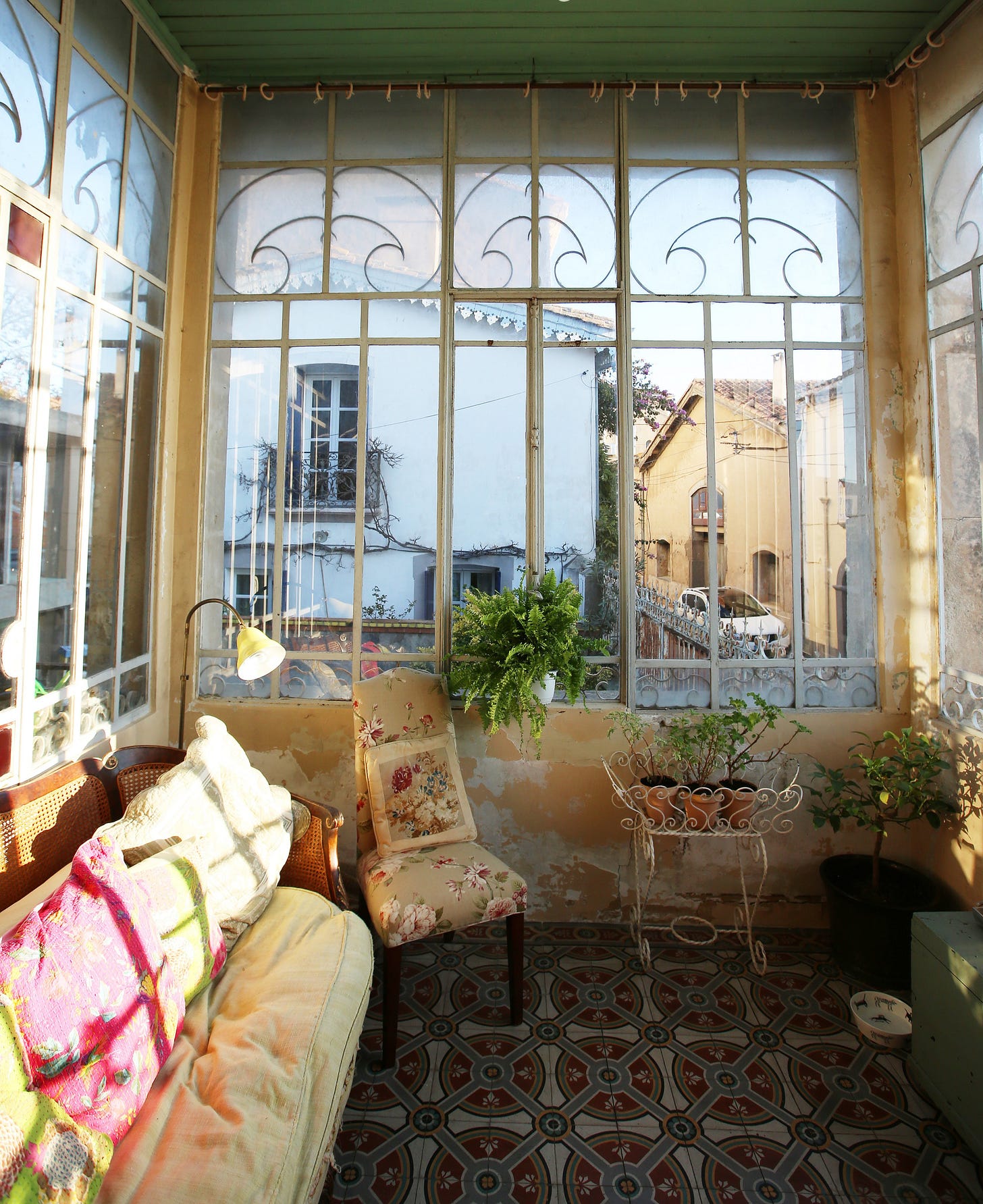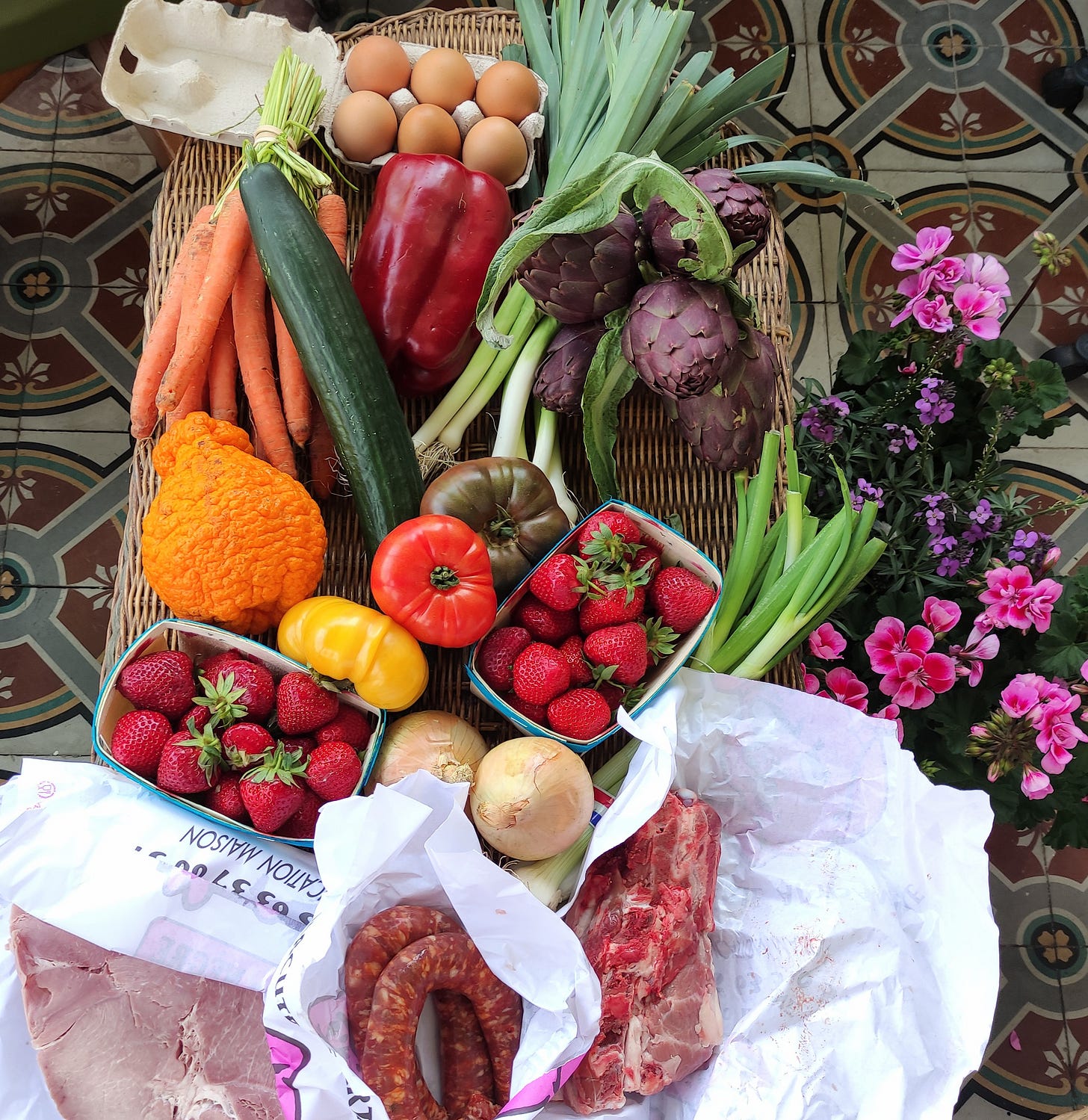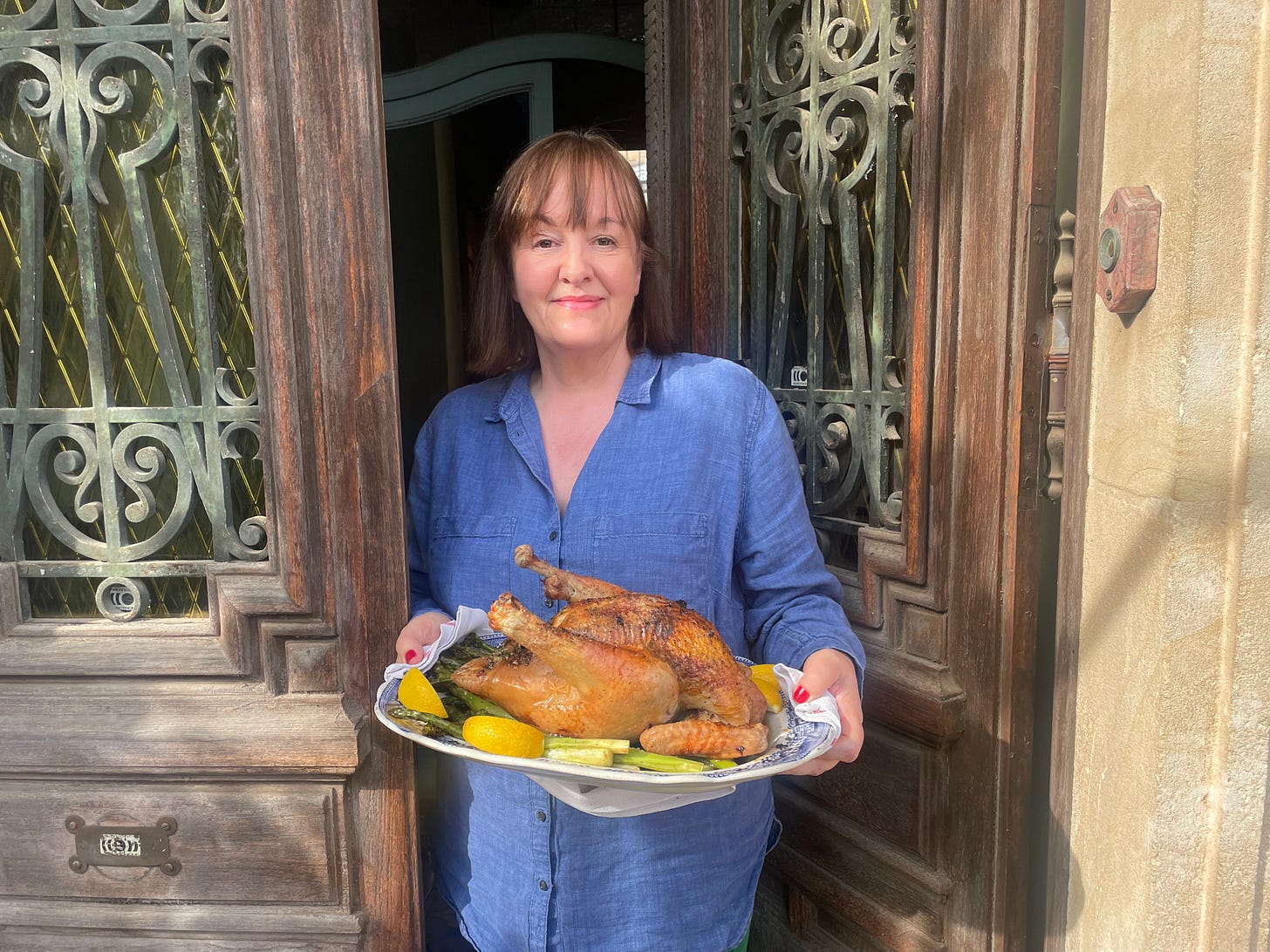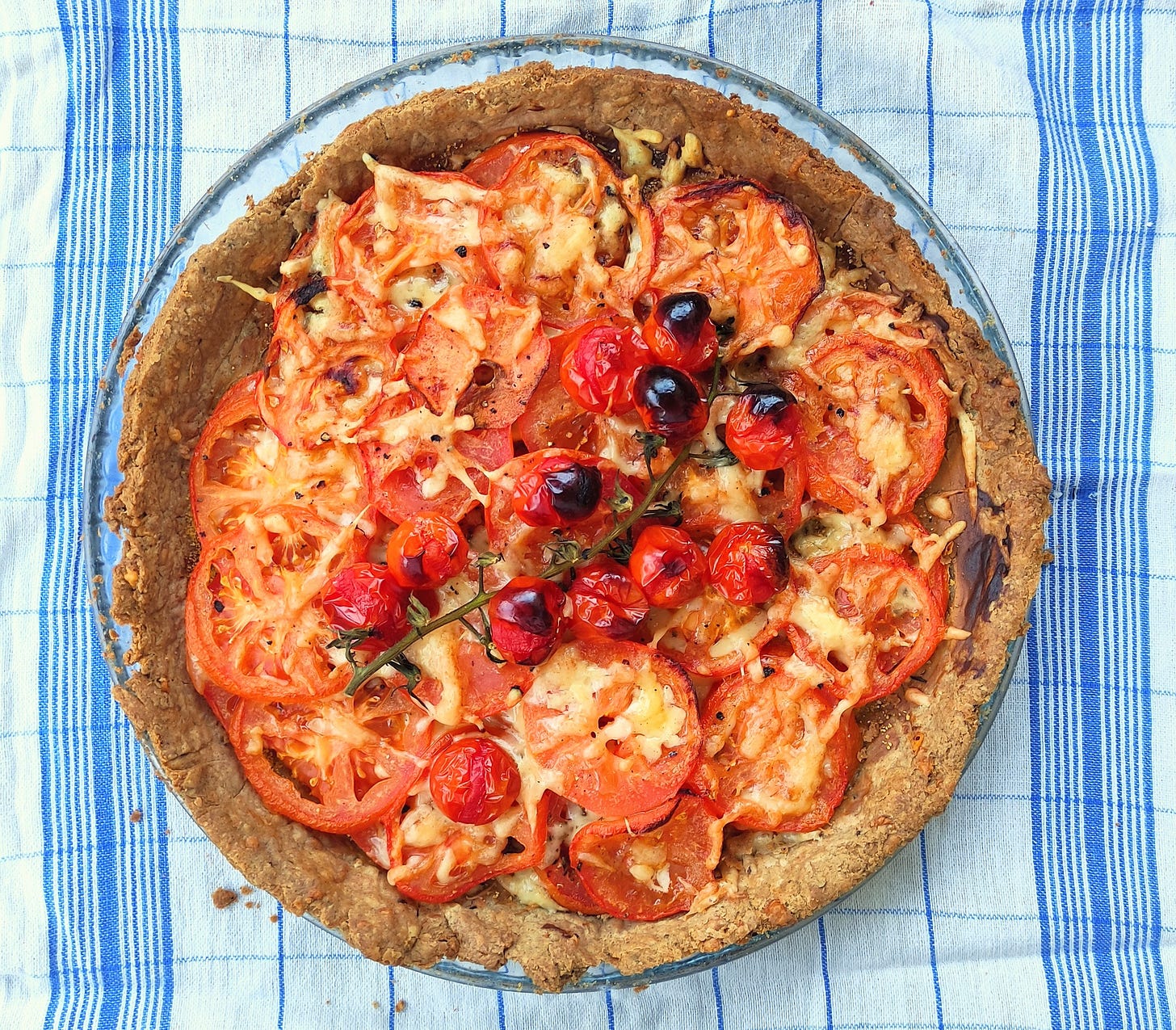Welcome to At the Table With, a new interview series where I invite fellow French cooks and creatives—whether native or adopted—to join me at my table for conversations about all things related to French food and lifestyle. Together, through their voices and stories, we'll explore the many rich facets of French living—from Brittany to the French Riviera—and how locals savor everyday life: one meal, ritual, and moment at a time.
Today’s guest is Debora Robertson, a British food writer living in southwest France. When she’s not writing for newspapers and magazines, including The Daily Telegraph, The Guardian/Observer and Delicious magazine, Debora writes Lickedspoon, her popular Substack newsletter where she shares stories from her French seaside village, her trips to the market, weekly recipes, and updates on her home renovations.
I discovered Debora Robertson just a year ago here on Substack, and I’ve been hooked ever since. A British journalist based in London, Debora made a bold move in 2021, trading city life for a new chapter on the banks of the Étang de Thau — a saltwater lagoon in the Hérault department of southern France.
Shortly after settling in, she began sharing snapshots of her new life on social media, posting each Tuesday about her market hauls from the local marché. The response was enthusiastic — people were not only charmed by the produce but curious about what she planned to cook with it.
So Debora decided to start her newsletter Lickedspoon, offering a delightful glimpse into her life in France: market trips, brocante browsing, house renovations, visits with friends — all wrapped up with a simple, approachable French recipe. But there’s so much more to her writing.
Debora has a gift for capturing the joys and absurdities of life abroad with wit, warmth, and a distinctly British flair. Through her newsletter, she offers readers not just recipes, but a thoughtful and often humorous perspective on navigating French culture. Standout essays like Twelve Things I’ve Learned about French Life, Language Lessons and Who’s Eating All The Butter? are prime examples of her charm.
Whether you're in it for the food, the stories, or the feeling of living vicariously through a well-written escape to France, Lickedspoon is a true pleasure to read. I can’t recommend it highly enough for Debora’s honesty, her humor, and, yes, her wonderfully good recipes.
Audrey Le Goff: Hi Debora. Can you share with us your experience about moving to France? Why did you decide to move to France, how did you land in Étang de Thau in Southern France, and how was the move? Any tips to share?
Debora Robertson: We had holidayed on the Étang for many years and then during Covid, in that September of 2020 when travel opened up a little bit, I was stir crazy in London and suggested to my husband that we come to France for a few months. I had a cookbook (Notes from a Small Kitchen Island, 2022) to finish and I thought it would be nice to do it there, buying beautiful produce in the market and testing recipes in the tiny kitchen of the house we used to rent. Also, my husband was working from home – like everyone then – and it didn’t really matter where “home” was, so we took advantage of that. While we were there, a house I’d always been fascinated by was for sale. It’s a beautiful Belle Epoque house right on the harbour, but it always had an air of having been abandoned – the garden overgrown, peeling shutters, rusting balconies. I could never understand why the nicest house in the village was in such a state. So we went to see it and that was that. We honestly hadn’t planned on moving to France, but I walked into the house, all the hair on the back of my neck stood on end, and that was that. I don’t know if I have any tips really because we did was quite mad and illogical, but it worked out for us.
ALG: What are the biggest quirks you’ve found since moving to Southern France?
RB: I spent a lot of time in France even before we moved here, so I haven’t been shocked by anything. But I still get confused by how long different shops are closed for at lunchtime – some only for a meagre hour, others for a punchy four hours. I like it though, and I love how weekends – especially Sundays – are sacred. Even Ikea is closed! People really value that time to relax and be with their families and friends. I hope that never changes.
ALG: Did living in France change the way you shop, cook and/or eat? Have you adopted new routines, new ways around the kitchen?
I’ve been a food writer and editor for a long time, and the way I cook was always influenced by the time I spent in France. I cooked seasonally and from scratch every day anyway, other than when I was working on recipes for magazines when I had to work several months ahead. I was lucky because we lived in Stoke Newington, London, where we had excellent farmers’ markets, brilliant Turkish greengrocers, fishmongers, bakers, butchers. So in fact the way I shopped there was very similar to how I shop in our village now. In an odd way, that hasn’t changed very much. I was fortunate to live in a part of London which was quite self-contained, quite like living in a village, and there was a strong food culture.
ALG: Where do you look for inspiration as a food writer living in France? What are some things that you’re finding especially exciting right now?
I get inspiration from friends and neighbours, local restaurants and food suppliers. We have lots of food festivals during the year too, and I’m always interested to see what is on the stalls – there are always lots of dishes with oysters and mussels, which I love. At the moment, the market is full of cherries and the first Charentais melons and apricots. The fruit here is exceptionally good, in the way that only fruit grown in the sunshine can be. I could never buy peaches and other stone fruit in England without it being a crushing disappointment. They’re picked before they’re properly ripe so they can be transported, but they are very, very seldom sweet.
ALG: What are some of your best food discoveries (a dish you ate, a recipe, a product…) in France?
I love brasucade, the mussels they cook with herbs and lemon, perhaps some chopped tomato – every family and restaurant has their own recipes – over vine wood so they have this wonderful smoky flavour. I also like to find a good tielle sétoise, the octopus and tomato pies of Sète, the town just across the Etang from us. A lot of them are quite stodgy, but if you find a good one, it’s a treat. Also I’m mad about the sea salt from Gruissan and Collioure anchovies, both just down the coast from us.
ALG: You’re quite the talented cook. Would you be willing to share two or three of your best kitchen tips ?
The best tip I can give anyone is to taste. Taste all the time, season and taste while you’re cooking. It always surprises me when people only season right at the end, which gives you a sort of surface flavour, not the deep flavour you want going right through the dish. When you cook alongside chefs, they taste all the time, add more salt, some more pepper, a few more bay leaves, some chilli flakes, a splash of vinegar or citrus. Cook thoughtfully and engage all your senses.
ALG: You’re hosting your dream dinner. What’s on the menu? How are you decorating? Who’s invited? What are you wearing? What music is playing?
The food we can get here – the produce, the fish and shellfish – is of such good quality I often buy the very best things I can find and then don’t do very much with them. I also think that’s about confidence. When I was younger, I used to think everything needed to be an elaborate recipe, a sort of showing off. Now, I would probably serve some olives and charcuterie, local oysters, some grilled fish with a tomato salad, then a green salad, cheese, and end either simply with some wonderful cherries or a tart I’ve bought from our local bakery. I might also buy some chocolates from one of the two excellent chocolatiers who work in our village to go with coffee. I like everything to feel very relaxed, so I keep the table quite simple – an old linen sheet as a tablecloth, little jars of garden flowers, white or softly coloured candles, pretty cutlery, glasses, plates, but I don’t care if everything matches, in fact I like it better if it doesn’t. I hate anything that looks too formal and stiff, it just creates the wrong atmosphere and feels quite old fashioned and boring. We’re always having people to stay so the guests are many and varied – old friends, new acquaintances who seem interesting, people from the village. I like to have new people at the table, it brings a different energy. I don’t care even a tiny bit what I or anybody else wears. You could have one person in a cocktail dress and another in a T shirt – we’re a very come-as-you-are household. When it comes to music, I loathe music that distracts from the conversation – which is the true music I want, a loud and lively table, with everyone talking and laughing. I hate restaurants where they play music and won’t go to them twice, however good the food is – I think if you need music to create atmosphere you’re not doing it right. So I might play a bit of campy café jazz or old crooners with drinks at the beginning, but once we’re sitting down I never want music. I’m probably some kind of philistine in this respect, but then lunch can often last ten hours so I suppose people don’t mind too much.
Thank you so much Debora for sharing this moment with us!
And to finish on a delicious note, Debora is kindly sharing with us her delicious recipe for Tarte à la Tomate (for paid subscribers). Bon appétit !
Keep reading with a 7-day free trial
Subscribe to A Table in France to keep reading this post and get 7 days of free access to the full post archives.





